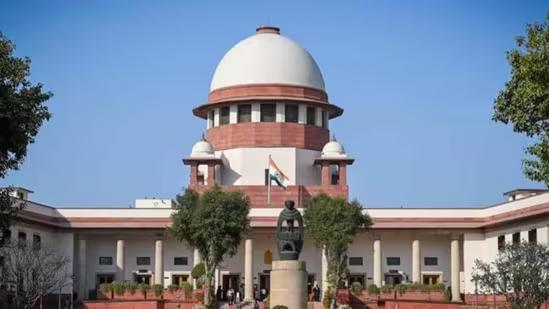
Title: Court can’t grant assent to bills, only Guv & Prez can: Maha to SC
The debate over the power of the court in relation to the legislative process has been ongoing in India for some time now. Recently, the Maharashtra government made its stance clear in the Supreme Court, arguing that courts cannot accord assent to bills and that only the Governor and the President have the power to do so. This development has significant implications for the functioning of the legislative branch of government in India.
The hearing in question was in response to a presidential reference on whether the court could impose timelines for the Governor and the President to deal with bills passed by state Assemblies. Senior advocate Harish Salve, representing the Maharashtra government, made the comments during the hearing. He emphasized that the power to accord assent to bills is a constitutional function that is vested in the Governor and the President, and not in the courts.
Salve argued that while the court can review the validity of a bill, it cannot grant assent to it. He cited several precedents to support his argument, including the Supreme Court’s own judgment in the case of Keshavananda Bharati v. State of Kerala, where it was held that the court’s power to review legislation is limited to determining its constitutional validity, and not to making it law.
The Maharashtra government’s argument is based on the constitutional framework of the country, which provides for a clear separation of powers between the legislative, executive, and judicial branches of government. The Constitution vests the power to make laws in the legislative branch, while the executive branch has the duty to enforce those laws. The judicial branch, on the other hand, has the power to interpret the laws and ensure that they are in accordance with the Constitution.
The Maharashtra government’s argument is also supported by the fact that the Constitution provides for a specific procedure for the passage of bills, which involves the approval of the Governor or the President. The Constitution does not provide for the court to accord assent to bills, and any attempt to do so would be unconstitutional.
The implications of the Maharashtra government’s argument are significant. If the court is not empowered to grant assent to bills, then it is unlikely that it would be able to impose timelines for the Governor and the President to deal with bills passed by state Assemblies. This means that the legislative process would continue to be governed by the normal procedures set out in the Constitution, and the court would not be able to intervene in the way that it has in the past.
However, some critics of the Maharashtra government’s argument have pointed out that the court has a important role to play in ensuring that the legislative process is transparent and accountable. They argue that the court can play a useful role in monitoring the passage of bills and ensuring that they are in accordance with the Constitution.
In conclusion, the debate over the power of the court in relation to the legislative process is complex and contentious. The Maharashtra government’s argument that courts cannot accord assent to bills and that only the Governor and the President have that power is supported by the constitutional framework of the country. However, critics of that argument have pointed out that the court has an important role to play in ensuring that the legislative process is transparent and accountable. Ultimately, the issue will require careful consideration by the Supreme Court and other stakeholders.






